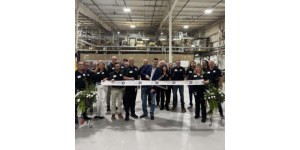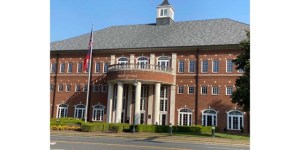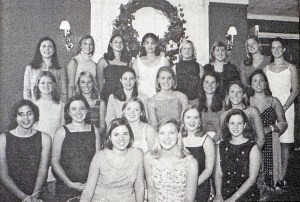Welcoming Volkswagen: Lessons six, seven and eight
Published 4:32 pm Thursday, April 2, 2009
A couple of months ago, I started the Volkswagen lessons series. My hope for these columns was to provide a snapshot of the report provided by the project team that traveled to Upstate South Carolina to learn about the change that BMW brought to that region.
Given that we are within the 30-mile radius of the Volkswagen facility, we will also be affected to a large degree. These lessons learned will help us all understand the changes that will occur and enable us to prepare better.
I also intended these to be a series of eight columns. In order to finish up this topic and continue to be able to use this space for current topics, I will finish the lessons by briefly presenting lessons six through eight in today’s discussion. These lessons include:
• Lesson six – Bridge the cultures,
• Lesson seven – Prepare for growth
• Lesson eight – Calibrate expectations.
With the announcement that BMW would be building a manufacturing operation in Upstate South Carolina, leaders there knew that they would begin to see new German residents move into their community. They quickly learned that the cultural differences would be greater than those related only to language. The impact of trailing families would be significant and require thought and planning around assisting these new residents into the community. Spouse issues would range from finding employment for them in a new country to managing the assimilation of their children into local schools.
To help with these issues, South Carolina leaders hired German culture teachers and created an international center. The teachers helped families coming into the community and to prepare for the return home after a two- or three-year stay. The International Center provided services such as how to obtain a driver’s license, instruction on getting utilities turned on, and business and translation services. One of the center’s most successful activities was the creation of an International Women’s Club. This club provided a social and volunteer portal into the larger community.
Just as Upstate South Carolina communities worked to make sure their new German residents were welcomed and that culture concerns were addressed, all communities within the Volkswagen impact region should plan for similar actions. We in the Dalton community already have a significant international population. Although the majority of these international residents come from Latin American countries, we have many other nationalities prominently represented in our community. We should work to make these temporary residents as welcome as possible and to help them assimilate into our community with ease.
Lesson seven challenges us to prepare for growth. Although immediate growth surrounding BMW did not start as quickly as some thought it would, growth did occur and throughout the region.
Greer, for instance, grew from a population of 10,000 to more than 25,000. The area of the city grew from seven square miles to 27 square miles. The paved-over rate of development is occurring at a rate of 86 acres per day. From 1990 to 2000, the number of developed acres grew from 222,500 acres to more than 576,000 acres. And by 2030, the number of developed acres is projected to be more than 1.5 million. Much of the growth management in Upstate South Carolina is being done in hindsight.
Those of us in the Chattanooga region should start now in planning for growth in all areas that will be affected. We need to more fully understand the areas of our community that will be affected the most and develop plans to proactively manage that growth. Managing growth can be a controversial subject. Communication will be crucial to insuring our success and in reducing controversy. All of us in the Tri-State Valley region must work together to increase the economic prospects of growth while simultaneously preserving the quality of life that help secure Volkswagen coming to our region.
And finally, as we plan for the opening of Volkswagen, we must calibrate expectations. All of us have felt the excitement of what may occur and the enthusiasm behind such a huge economic driver like an automobile manufacturer. It can create thoughts of instant prosperity and economic success. This opportunity is so large, even the non-profit community begins to imagine the economic impact that could be available for education, the arts, culture and social services.
As we plan for the start-up of operations at Volkswagen, we need to be mindful that our perceptions are not reality. Volkswagen and its suppliers will create new jobs. These jobs will be higher paying in many respects and require experience and training. Given that we are a manufacturing region of Northwest Georgia, our citizens have experience in manufacturing operations. Many will have to get additional education, but manufacturing they understand. Change will occur in the quantity of jobs being created, the quality of those jobs, and the skill set required to become employed in the automobile manufacturing industry.
In managing or calibrating our expectations, we must create realistic expectations. Insuring appropriate communication procedures will enable the management of our expectations.
Volkswagen and its operations will dramatically change the Tri-State Valley region. If we communicate regionally and partner regionally in calibrating our expectations, we can better prepare our communities and our citizens for the change that will come.
I continue to be excited by the opportunities that Volkswagen will bring to our community and the Tri-State Valley region. We are just as focused on other economic development activities. We have a strong plan that enables to work with our existing businesses in growing and for recruiting new businesses. Volkswagon is just one of those drivers.
I firmly believe that our best days are ahead of us! Our future is now.
Brian Anderson is president of the Dalton-Whitfield Chamber of Commerce.






